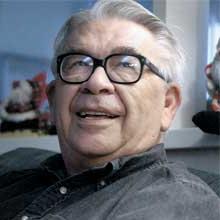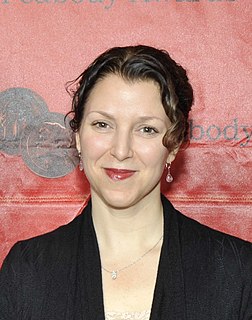A Quote by Robert B. Laughlin
In parallel with the development of my interests in technical gadgetry I began to acquire a profound love of and respect for the natural world which motivates my scientific thinking to this day.
Related Quotes
One of the greatest accomplishments of Western civilization is the development of the scientific method and the scientific disposition, which entail the development of falsifiable hypotheses about the world and the unwillingness to take unverified and untheorized claims about the world as truth, simply because someone states that they are true.
I should describe mine own nature as tripartite, my interests consisting of three parallel and dissociated groups - (a) Love of the strange and fantastic. (b) Love of the abstract truth and of scientific logick. (c) Love of the ancient and the permanent. Sundry combinations of these three strains will probably account for all my odd tastes and eccentricities.
I was a reasonably good student in college ... My chief interests were scientific. When I entered college, I was devoted to out-of-doors natural history, and my ambition was to be a scientific man of the Audubon, or Wilson, or Baird, or Coues type-a man like Hart Merriam, or Frank Chapman, or Hornaday, to-day.
As time passed I became an avid reader of popular scientific books, wanting to know as much as I could about the world in which I lived. Gradually I began to see a pattern of nonsense in much scientific writing. Scientific explanations given regarding the origins or functioning of various phenomena simply didn't make sense.
I am a big fan of Neil DeGrasse Tyson. He's the voice of science and scientific thinking in the United States and the world. He's the most visible proponent of scientific thinking, and he's very unflinching about it. He knows that it's correct and vouches for it in a very intelligent and very firm way, which I really appreciate.
The ends of scientific classification are best answered, when the objects are formed into groups respecting which a greater number of general propositions can be made, and those propositions more important, than could be made respecting any other groups into which the same things could be distributed. ... A classification thus formed is properly scientific or philosophical, and is commonly called a Natural, in contradistinction to a Technical or Artificial, classification or arrangement.
My interest in Virtual Reality (VR) films began for me when I began a fellowship with MIT's Open Documentary Lab. It was a profound experience to be on MIT's campus one day a week and to enter a new world of storytelling where breaking convention and traditional methods were expected. This was deeply challenging and inspiring.
Man is by nature a pragmatic materialist, a mechanic, a lover of gadgets and gadgetry; and these are the qualities that characterize the "establishment" which regulates modern society: pragmatism, materialism, mechanization, and gadgetry. Woman, on the other hand, is a practical idealist, a humanitarian with a strong sense of noblesse oblige, an altruist rather than a capitalist.
Protestantism as such is a better defender of the interests of Germanism, in so far as this is grounded in its genesis and later tradition; it fails, however, in the moment when this defense of national interests must take place in a province which is either absent from the general line of its ideological world and traditional development, or is for some reason rejected.




































